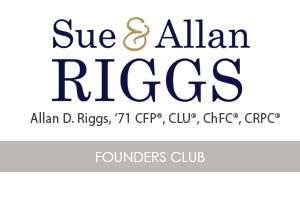
The CERTIFIED FINANCIAL PLANNERTM certification is the best-known certification in the financial planning community. It recognizes that the holder has met rigorous requirements and communicates expertise and credibility.
With 93% of financial planners expressing strong contentment in their career choice, joining this dynamic profession not only offers personal satisfaction but also provides opportunities for meaningful impact and success.
What exactly does a financial planner do?
Financial planners are trained to assess the budgets, cash flow, and risks of individuals and families, and to advise regarding the management of their investment portfolios. Evaluations are made regarding retirement, investments, business planning, estate planning, and tax planning. A written analysis and recommendations are typically provided.
How can becoming a CFP® Professional help my career?
To be qualified as a CFP® professional and eligible to use the trademark, certificants must meet stringent criteria established by the CFP Board of Standards Inc. The standards of Education, Examination, Experience, and Ethics ensure this as a unique and highly credible certification. Professionals who have earned this designation are in high demand in the financial services sector. Visit the CFP Board of Standards to learn more about the CFP® Certification process.
How do I become a CFP® Professional?
The certification process requires you to meet the four E’s: Education, Examination, Experience, Ethics. Completing the education component by enrolling in a board registered program is one step in the CFP® certification process. Anyone planning to sit for the CFP® Certification Examination must meet certain qualifications determined by the CFP Board. Options to meet these qualifications include:
What will I learn in the financial planning core coursework at Texas A&M University?
Students will learn the principles of personal financial planning in the core courses: Financial Planning for Professionals, Investment Planning, Insurance Planning, Estate Planning, Tax Planning, and Retirement Planning. In the Financial Planning Capstone course, students go through the financial planning process and create a comprehensive financial plan for a client. We pride ourselves in providing knowledge that goes beyond the exam and prepares students to be competitive and skilled financial planners.
What pathways are available at Texas A&M University?
Texas A&M University has three board registered programs and students completing the coursework through one of our pathways are one step closer to meeting the education requirements. The three pathways to meet the education requirements required for the CFP® Exam through Texas A&M University are:
- Financial Planning Major (undergraduate baccalaureate program)
- Financial Planning Minor (available to all enrolled undergraduate students)
- Extended Learning Certificate Program (non-degree seeking)
Texas A&M University does not award the CFP® credentials. Certified Financial Planner Board of Standards Inc. owns the certification marks CFP®, CERTIFIED FINANCIAL PLANNERTM and federally registered CFP® (with flame design) in the U.S., which it awards to individuals who successfully complete CFP Board’s initial and ongoing certification requirements.







